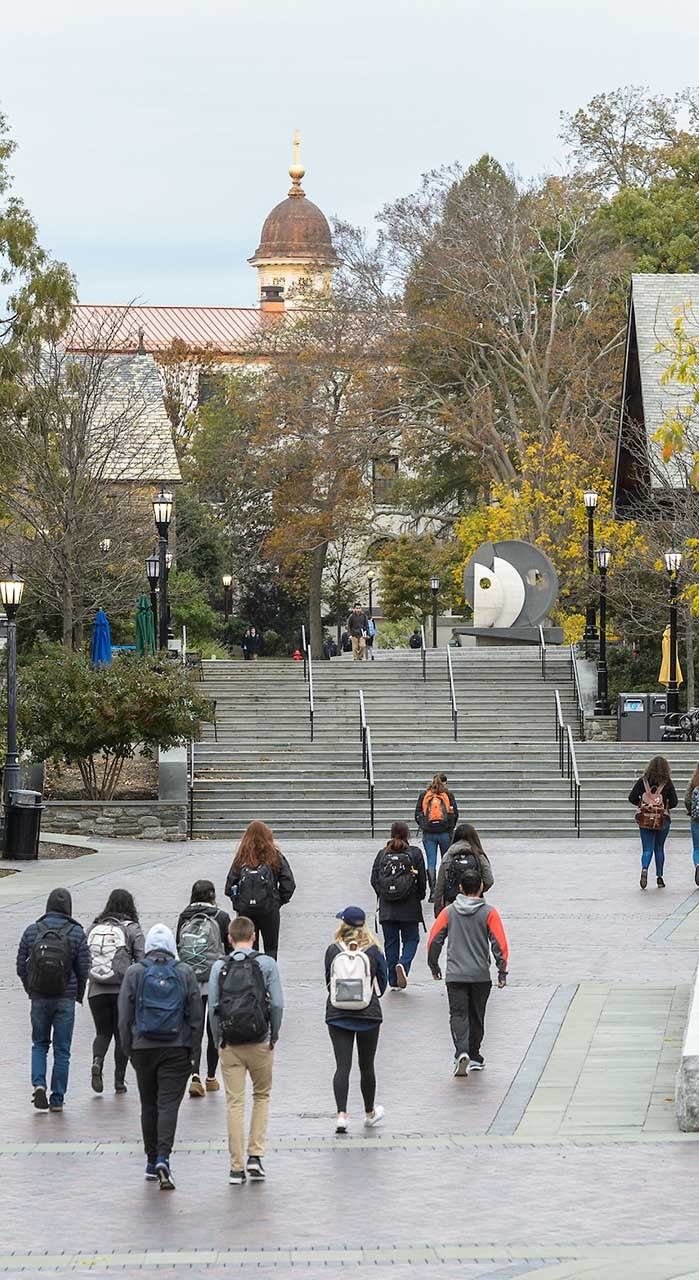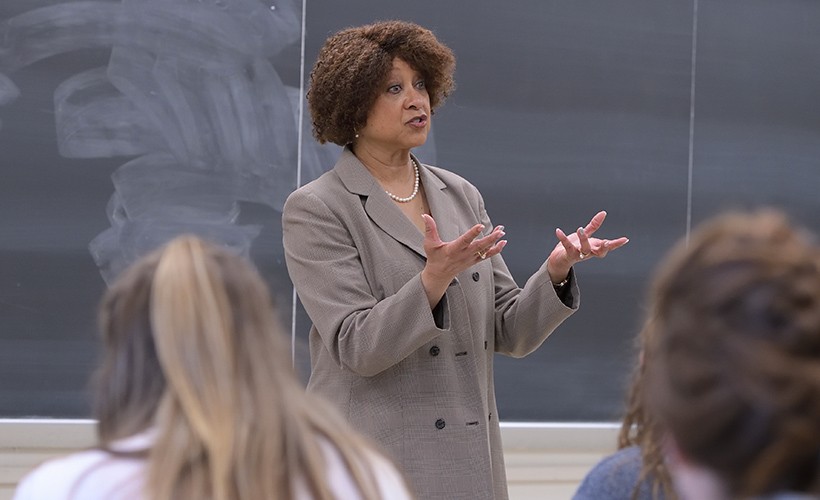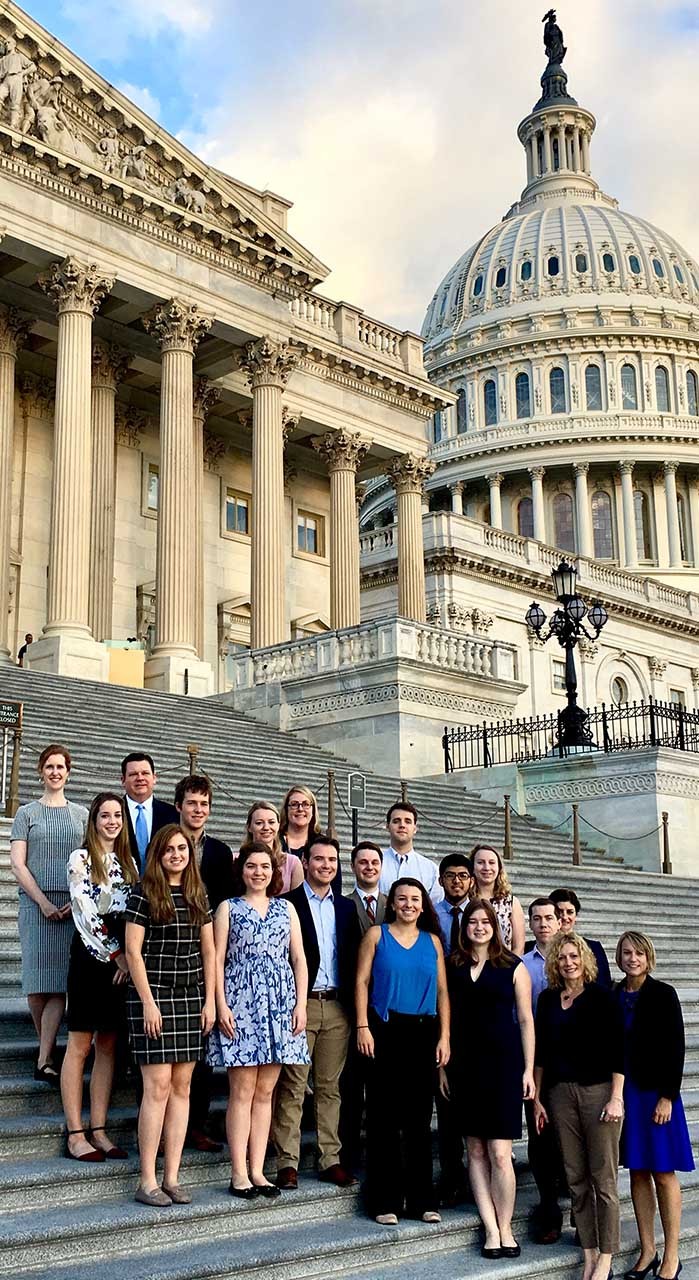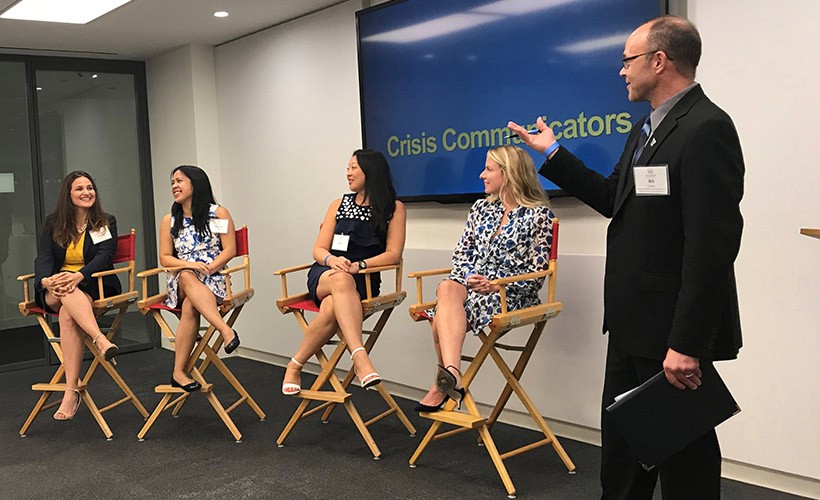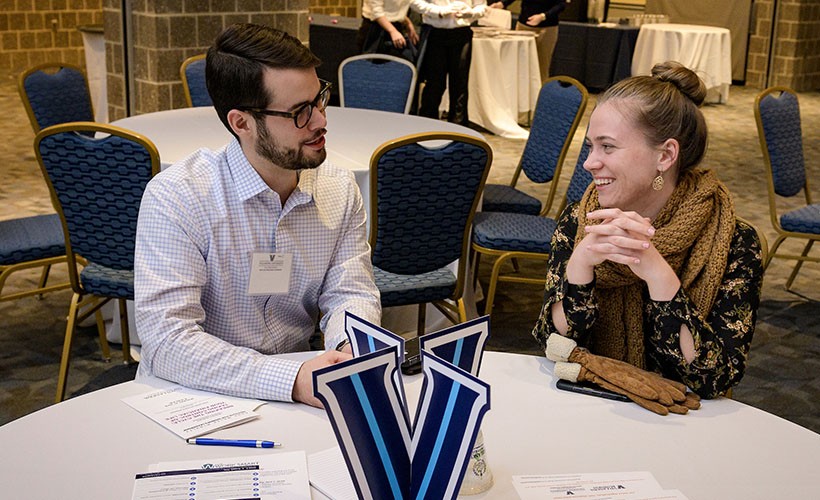Student Testimonials: Serena Matos ('23)
We sat down to chat with Serena Matos, who graduated with a double major in biology and Spanish, about her time as a Spanish student.
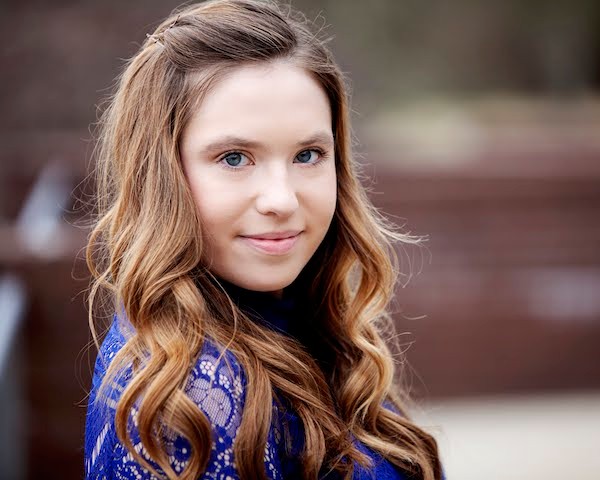
Serena Matos ('23) was awarded a 2023-2024 Fulbright English Teaching Assistantship to Spain
What made you decide to study Spanish?
I originally started with Spanish just to fulfill my language requirement, but after discovering the great professors there and the variety of courses and research opportunities offered, I felt compelled to complete a major. I thought it would be difficult with my primary major (Biology), but thankfully they were really supportive and it was much easier to integrate a second major than I thought it would be!
What made you choose a major as opposed to a minor in Spanish?
I had several discussions with a Spanish professor my sophomore year, and I found that having a major in Spanish usually leads to better outcomes in terms of command of the language, and it's more prestigious for employers. Also, taking courses required by the major opens the doors to take additional courses in the Spanish Department that I found interesting.
How difficult was it to incorporate a second major?
I came in with some AP credits, so I had some added wiggle room in my schedule, but it still wasn't very difficult. I had to take 1-2 Spanish classes per semester to complete both majors on time.
What was your favorite assignment from your Spanish classes?
For Spanish Literature and Culture, we traveled to the Philadelphia Art Museum and had to find all of these different Hispanic painters and write a report about it. It was really interesting to see the different influences from Spanish and Latin American culture on art. It was also a good opportunity to learn how to get into Philly, which is essential as a Villanova student!
You got to do some linguistics research as a Spanish student, right?
Yes, in the Language Use and Variation Lab. The ability to do research in Spanish was amazing because in other departments it can be very competitive and difficult to get research opportunities. Having the option to do linguistics research in Spanish was awesome. Research teaches you all about the academic process and makes you better at reading and writing up academic studies too. In the LUV Lab, I was able to transcribe and analyze data from a real Hispanic community in Philadelphia, which was a great way to apply my knowledge of language and linguistics to better understand how community influences language structure.
What other activities were you involved in on campus?
I was the VP of Catholic Relief Services Global Ambassadors on campus. I was also a member of the Villanova Voices, and we recently were able to travel to Spain. I got to utilize the language skills I gained in a real world setting, and it was really exciting!
How have the courses you've taken in Spanish have prepare you for your adult life and career?
The Spanish Department is expanding its horizons in terms of the kinds of classes it's offering, and that's really exciting. The courses I've taken in the Department of Spanish have helped improve my communication skills in general, and they've helped me develop other professional skills. For example, I took Spanish for the Healthcare Professions, which showed me how useful knowing Spanish is in medicine (both for interacting with Spanish-speaking patients and for learning the Latin-based medical jargon). The Department is also adding several linguistic courses, which I really enjoyed. I even got to learn how to code and train machine translation algorithms in my Spanish translation class! It goes to show that studying Spanish has a lot applications beyond language proficiency. It's helped me learn how to better communicate with people from different backgrounds, which is really important as I look to my future career.
How will Spanish help you in the future?
Right after graduation, I'll be going to Spain to teach English through the Fulbright program. Obviously, knowing Spanish will help me while I'm there, but I'll also be relying on other skills I developed while a Spanish student. For example, I got to participate in experiential learning with the Mighty Writers organization, which pairs Spanish students at Villanova with Spanish-speaking children in Philadelphia to help build critical thinking and writing skills.
What made you want to apply for a Fulbright fellowship?
I had always heard about it, but I wasn't sure what it was. I went to an info session with CRF, and I was really interested in the program. I had always been interested in teaching English and using my Spanish skills, so it seemed like a perfect fit. Also, I wasn't able to study abroad in Spain while I was a student due to COVID, and I really wanted the opportunity to live in a Spanish-speaking country. The Spanish Department was extremely supportive of my decision to apply. More than half of my recommendations came from Spanish professors.
Are there any assignments from your Spanish classes that you might adapt when teaching English in Spain?
I really liked the assignments we did in my translation class because they compared machine translation to human translation. In Spain, I was placed in a science-based center that incorporates lots of STEM activities into English courses. I think students will really love seeing how technology interacts with language as much as I did.
Once you finish your Fulbright, what do you plan to do?
I'm hoping to apply to graduate school. I haven't decided on a specialization yet. I'm hoping to go into education, possibly with Spanish or linguistics. I haven't decided, though! I'd like a Master's or PhD so that I can teach and do research of my own in the future.
Do you have any advice for future students?
Do what's best for you and your schedule, but I recommend majoring in Spanish if you can. If you're on the fence, just talk to your professors and they'll work with you to try to find a way to make it happen. Majoring opens the door to so many possibilities: studying abroad, meeting interesting professors, and building desirable skills. Demonstrating linguistic competence with a major is also really attractive when you're looking for jobs or applying for competitive fellowships!

